Advice for 20 Years Old Self: 20 Lessons of 20th (Part2)
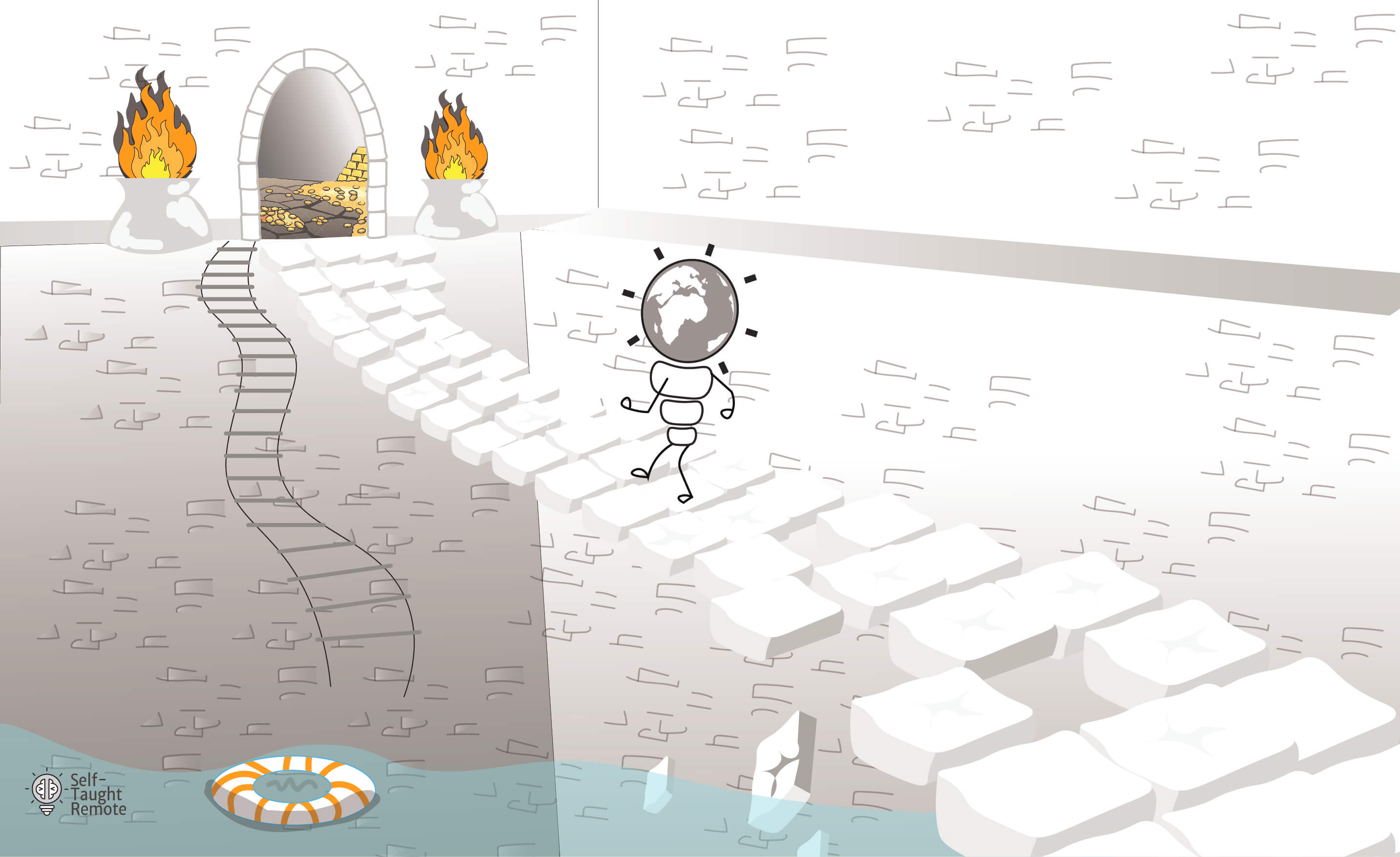
Every one of us has some moments of life when we turn back and reflect on the past. Often it is the age milestones such as 20, 30, 40, 50, etc., that cause us to turn back and summarize the past experience and recall the main lessons learned from it.
I am sharing Part 2 with the things I would advise my 20 years old self. Things that were helping me during my journey as a Software Engineer and had the most profound impact on my life and career. You should read it if you want to learn the main insights of the 10years journey of a Software Engineer in just a few minutes. I hope you will find something useful for yourself here. Enjoy the read!
Lesson #4: Get Comfortable to Do Things You Don't Know
There will always be situations in life when you will need to do something you have never done before or those you have never been to yet. And it will often cause anxiety and fear of making a mistake.
It is almost always the case in tech. Very often, a Software Engineer solves problems they had never solved before. Or even more unique challenge that no one solved before.
The earlier you start to accept new challenges in your life as the opportunities to grow and learn, the more life energy you would save and produce.
There are hundreds of books on this topic. And many of them are worth reading. But I doubt that any of them will fit all the inns and outs of your unique personality. You would need to create your own system that works best specifically for you.
You will release a tremendous amount of energy that you would otherwise spend on handling anxiety and fear in anticipation of doing things you do not know.
Lesson #5: Remember Time Energy is The Only Resource You Have
Time (No, energy) is the greatest and the only resource of yours. To efficiently utilize your time on any activity, you need to have energy.
Many often say that time is the most important resource we all have. But I would partially disagree with that. It is the energy that is the essence of everything. It is the energy that allows doing everything during the time. If there is no energy, there is no time that person could spend efficiently. And there will not be a difference whether they have time or not.
Let's imagine Sam and Jasmine. Let's review the day in their life.
Jasmine works from home on the project of her dreams. She loves to collaborate with her colleagues, and she sees the contribution she made to the project that makes her proud of her work.
After spending few hours at work, she takes a break to have a cardio workout. She gets a couple of "aha" inspirational moments related to complex problems for an ongoing project at the treadmill. Inspired by that, she contributes additional few hours to the project.
Energized by the contribution she made on that day, she spends the rest of the time learning something new, meeting friends and family, and working on her dream plan.
Sam is working at the office where he should commute for an hour. He works on a project that does not interest him. Although Sam does a great job, his contribution is rarely acknowledged. He likes most of his colleagues. But collaboration with some people, especially the boss, causing a lot of stress. When the end of the workday approaches, Sam feels drained out. And the only further activity he can imagine is to grab a beer, lay on his couch.
Sam feels unhappy, but the necessity to pay the bills helps to make this compromise.
Both of them have the same amount of time, but who do you think uses it more efficiently? Who do you think will spend time on things that matter, and who wastes it? You got it!
Focus on doing things in your life that gives you the energy, and stop doing those that suck it out of you. Be around the people who energize you and avoid those who discharge you. Get rid of objects in your life that consume more of your energy than produce.
To be more concrete, here is my list of things that influence personal energy balance in a long run:
- Sleep - I do not think it is possible to have any energy without it.
- People - friends and family, spouse, coworkers, yourself. They are all either energize you or drain the energy out of you.
- Food - You are what you eat. Every food has an energy impact on you.
- Sport - Is a source of both physical and cognitive energy.
- Work - What you do and whom you do it with impacts the level of personal energy.
- Learning - Getting to know new things gives a feeling of progress and energy boost. And as I mentioned before: "Progress equals happiness"
- Environment - the place where you live matters.
- Leisure - any occasions you define as leisure. It could be travels, hiking, restaurants, concerts, cinemas, training dolphins, etc.
- Objects - every belonging you have can either give you energy or take it.
- Money - you may hear: "Money does not equal happiness"; That is somewhat true. But this one is also true: "Absence of money is causing a lot of unhappiness";
I would also recommend the book where you can find a good piece of information about this topic: How to Fail at Almost Everything and Still Win Big: Kind of the Story of My Life
Lesson #6: Practice Low Information Diet
The Low Information diet means only digest information that moves you towards your life goals. And ignore everything else. It is a philosophy of purposeful information digestion.
The human brain has limited cognitive resources. Why waste it on funny cat videos, scrolling Instagram of people you have no relation to, and other garbage content that drops in your inbox? Well, funny cats will probably give some positive energy, so it is okay to engage with it from time to time.
It is like a computer program that runs in the background and consumes CPU and RAM resources, but you never use the program for your needs. Why not stop the program?
Each information source should serve your life goals. If this piece of information does not move you towards it, ignore it.
When you have a side look at our day-to-day life, you may find yourself in a clutter of information that wastes your energy and time. It could be either TV, Social Media, Email Inbox, etc. Many of those things in your life because service providers learned how to leverage cognitive biases we all have.
If you stop wasting cognitive power on all those things, you will free up space for things that matter to you most.
I do not have TV, and I do not use any Social Media for leisure. I unsubscribed from every irrelevant information source. I use tools that track my time and protect my energy. And the day after I decided to do that, I felt such a relief.
Unlike a century ago, in the 21st-century, people's success will be strongly correlated with their ability to ignore irrelevant information rather than searching for it. We can find answers to most of the questions on the world wide web now. But we need unoccupied cognitive energy to ask questions the most important for our lives and goals.
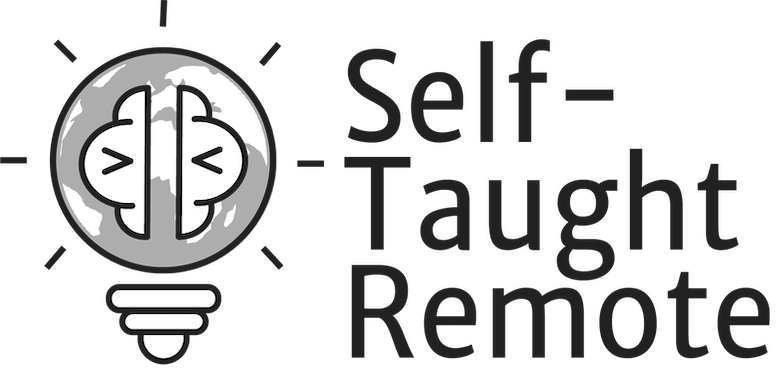
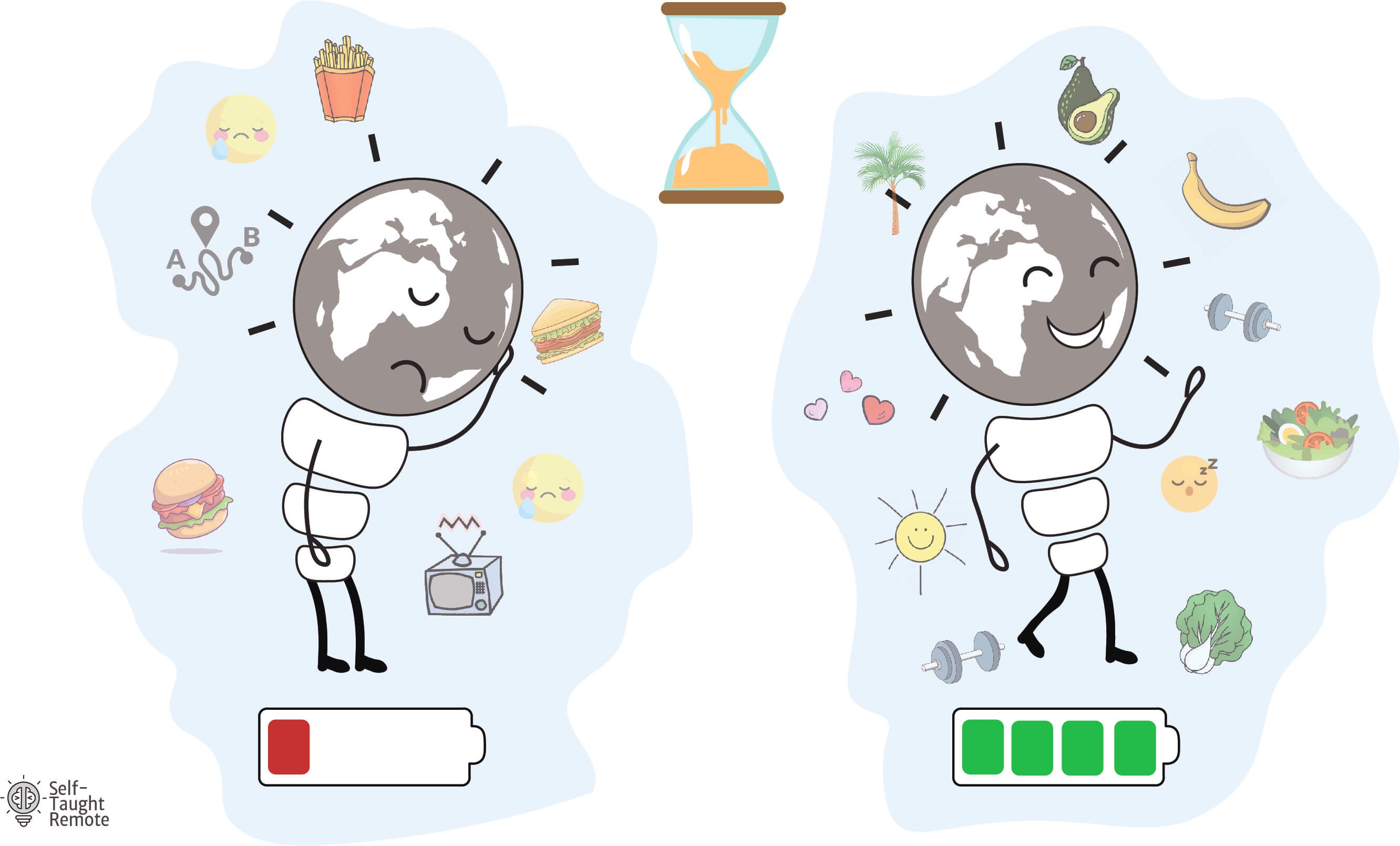
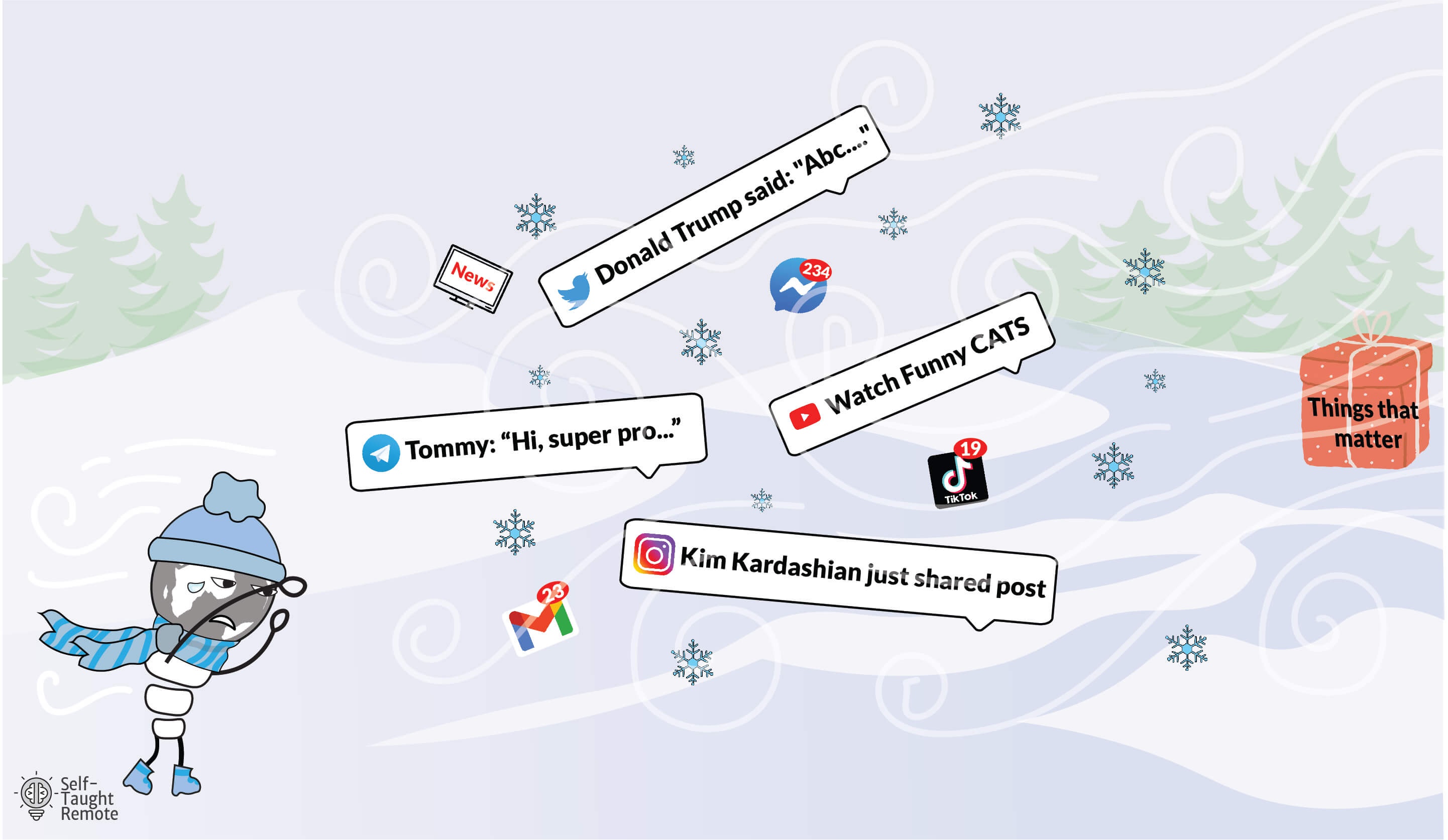
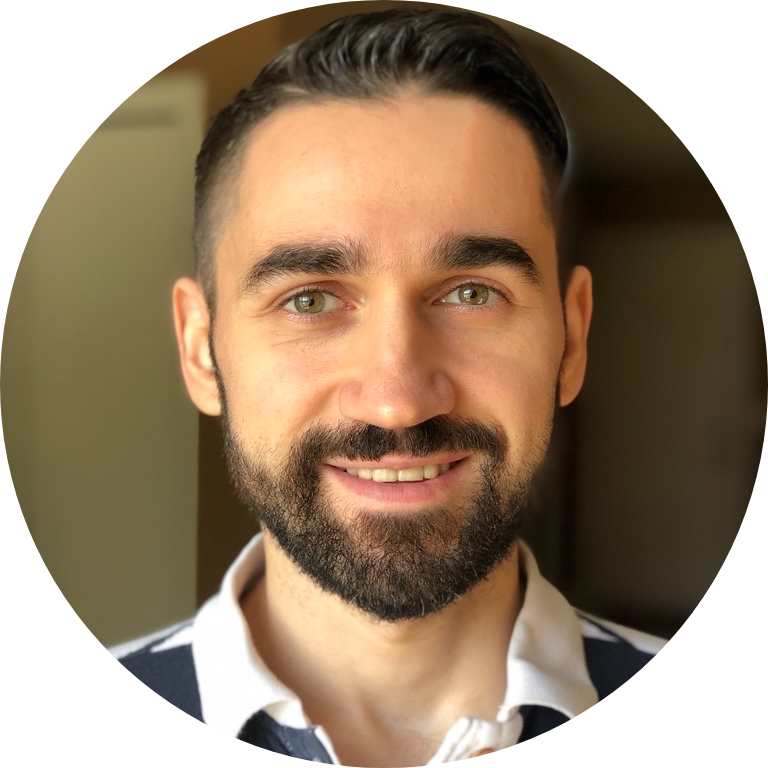
There are currently no comments